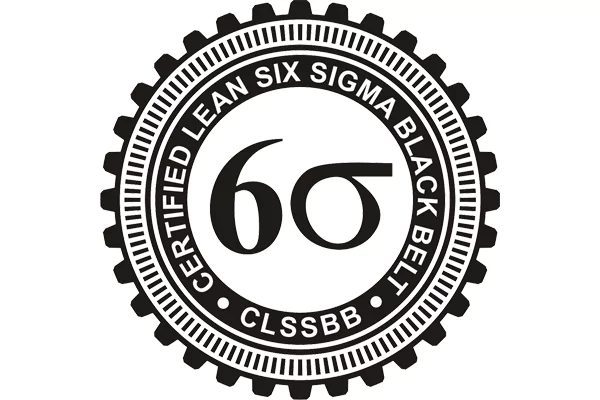Course Curriculum
Course Content
- Overview of Lean Six Sigma methodology and its benefits.
- Role and responsibilities of a Lean Six Sigma Black Belt practitioner.
- Differentiating between Lean, Six Sigma, and Lean Six Sigma.
- Overview of DMAIC (Define, Measure, Analyze, Improve, Control) process.
- Advanced project scoping and charter development.
- Stakeholder identification and analysis.
- Defining project goals and objectives.
- Project management principles within the context of Lean Six Sigma projects.
- Advanced data collection techniques for complex processes.
- Process mapping and value stream mapping.
- Statistical tools for process measurement and analysis.
- Measurement system analysis (MSA) for advanced scenarios.
- Advanced data analysis techniques, including regression analysis.
- Hypothesis testing for complex situations.
- Design of Experiments (DOE) for process optimization.
- Root cause analysis using advanced Lean Six Sigma tools.
- Generating and evaluating solutions for process improvement.
- Applying advanced Lean principles and tools for optimization.
- Piloting and validating process improvements.
- Strategies for waste reduction and efficiency enhancement.
- Developing advanced control plans for sustaining improvements.
- Implementing process controls and monitoring mechanisms.
- Leading change management initiatives and managing resistance.
- Advanced leadership skills for leading cross-functional teams.
- Effective communication and stakeholder management.
- Managing teams through the various phases of DMAIC.
- Introduction to Design for Six Sigma methodologies.
- Applying DFSS principles to design and develop new processes or products.
- Exploring advanced Lean and Six Sigma concepts.
- Analyzing real-world case studies to apply Black Belt concepts.
- Engaging in group discussions and sharing experiences.
- Practical exercises, simulations, and scenario-based learning.
Quick Enquiry
Exam & Certification
The exam format is typically multiple-choice, with some exams including scenario-based questions that require analysis and application of concepts to real-world scenarios.
- Enroll in a reputable Black Belt training program to deepen your understanding of advanced concepts.
- Study the provided materials and resources thoroughly.
- Take practice exams to familiarize yourself with the exam format and types of questions.
Testimonials
Lean Six Sigma Black Belt FAQ's
Lean Six Sigma Black Belt certification is an advanced-level qualification that demonstrates expertise in Lean Six Sigma methodologies and the ability to lead complex process improvement projects.
The exam covers advanced topics such as advanced statistical analysis, design of experiments, process optimization, project leadership, change management, and more.
Yes, accredited training organizations (ATOs) provide official training and often include exam preparation in their curriculum.
Some training programs include the exam as part of the package, while others require separate registration and payment for the exam. Check with your chosen provider.
Research providers, read reviews, check for accreditation, review the curriculum, and ensure it aligns with your learning goals and schedule.
The course duration varies, but its often several days to a couple of weeks. The exam itself is typically a few hours long.

.webp)
.webp)


